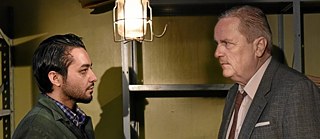Berlinale-Blogger 2017
“The Other Side of Hope” is more topical than ever

Everyone says it’s the favourite. And it is almost inevitable: Aki Kaurismaki is the quintessential “festival” director – one of those directors both jury and public can’t help but love.
His style, cultivated over more than 30 years, always somewhere between tragedy and comedy, examines the paradoxes in modern western society, with a special focus on his native Finland. This time, however, the subject is even more topical than ever. The other side of hope tells the story of a chance meeting between an old restaurant owner with a passion for poker and a Syrian immigrant seeking asylum. Despite clashing at first, they end up as friends who help one another along. The film's dramatic backdrop is the disappearance of the Syrian boy’s sister.
The world premiere of The other side of hope will be held at the Berlinale on Tuesday 15 February, journalists will see it the morning of the previous day. Six years have passed since Kaurismaki’s last film, Le Havre. In some ways, The other side of hope continues in the same direction: both because it focuses on the plight of refugees (in the 2011 film, the main character was an African child), and because it forms part of a trilogy about port cities – the Director already has ideas, or so he claims, for the third in the series.

Fortunately, thanks to the power of cinema, ideas do not need visas. They can circulated freely wherever they want to. To Berlin and the rest of the world.